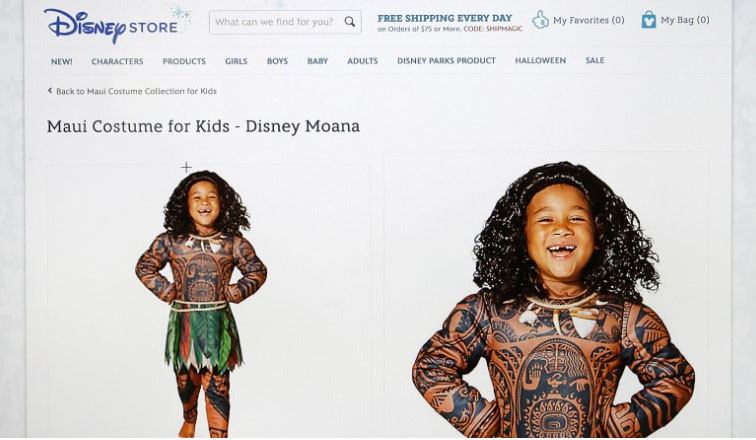Designers thought they were respecting Pacific Island culture, but critics disagreed
Okay, we get it. If you’re Disney, and putting out a fall movie starring Dwayne “The Rock” Johnson, then you’d like to cash in on that fact with a Halloween costume. But…maybe someone should put the brakes on when the idea of making it a brown bodysuit covered in traditional Polynesian tattoos (which hold deep meaning for many) comes up? While fake tattoo sleeves have been around for many years, they slide by on a couple of factors – #1, they are typically sold by random small vendors in niche shops, and #2, they aren’t specific enough to catch the label of “culturally appropriate”.

Disney, on the other hand, isn’t “sliding by”. Much the opposite, in fact. Because of the company’s extreme visibility, global profile and vocal commitment to diversity, as well as the unspoken commitment that comes with telling stories born of regions and cultures around the world, it’s held to some pretty tough standards. It wasn’t long after the costume above went up for sale that critics of Polynesian and Hawaiian descent began to speak out online:
As excited as I am for #Moana, and as cool as Maui will be, other people’s skins are not costumes. @DisneyAnimation https://t.co/p9RsWt18o0
— jess banks (@ProfBanks) September 18, 2016
https://t.co/VW1c2003JX Dear @Disney this is cultural appropriation. & my culture is not a costume.
— Keakeake (@8keakeake) September 18, 2016
A few high profile shares to social media channels and Disney got the message, pulling the costume from racks and releasing a brief statement:
“The team behind ‘Moana’ has taken great care to respect the cultures of the Pacific Islands that inspired the film, and we regret that the Maui costume has offended some. We sincerely apologize and are pulling the costume from our website and stores.”
Disney is light years from being taken down by an incident like this, but the company’s swift reaction demonstrates just how important it is to leadership that controversy be swatted down immediately. It’s also a good reminder for smaller shops who might be seriously harmed by having to pull even a small part of their product line from shelves – always, ALWAYS, consider how something could offend, and how it could be misinterpreted. It’s lovely to picture how incredibly popular something might be, but keeping your head in the clouds is a surefire way to let reality sneak up and give you a first-hand look at some real trouble on the ground.
Erik Bernstein
www.bernsteincrisismanagement.com
